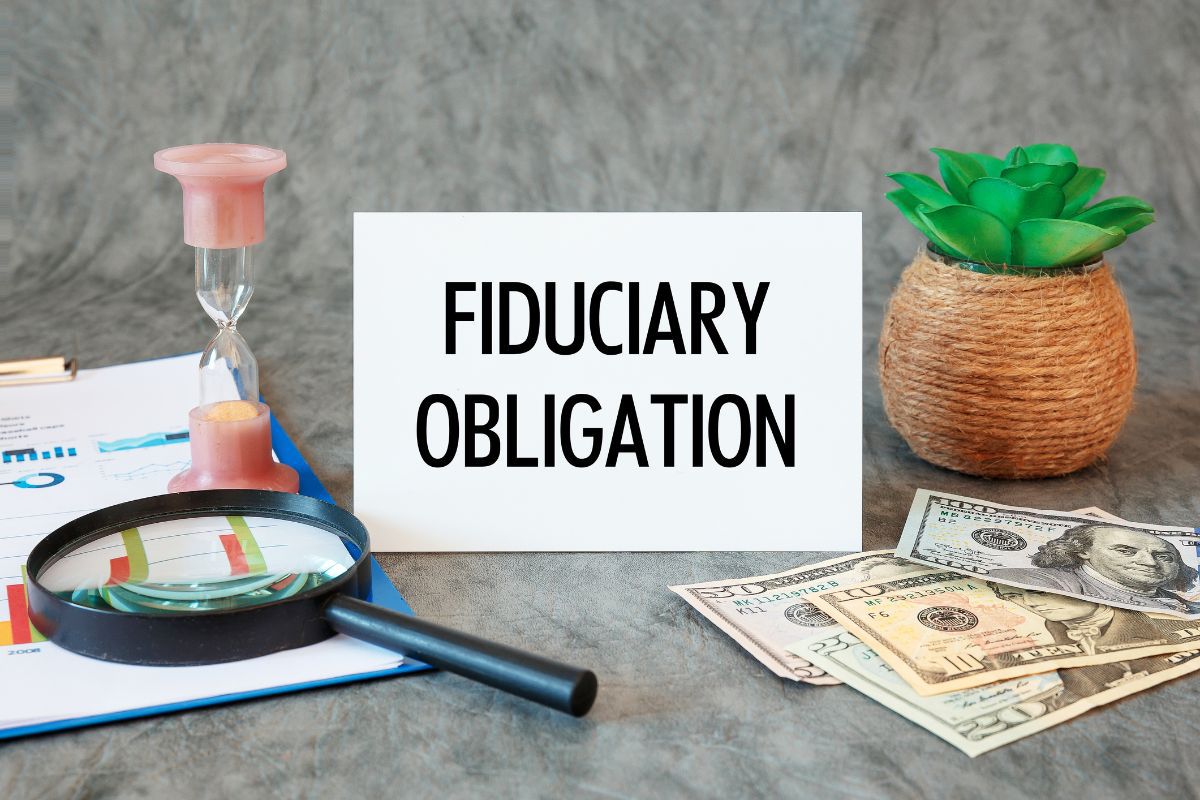If you are responsible for acting on someone else’s behalf, you may need to know more about fiduciary responsibility. Fiduciary responsibility is a legal concept that holds people who act for or make decisions for other people to a high ethical standard. Violating these duties can lead to serious legal consequences. If you have questions about being a fiduciary or receiving help from one, please seek legal advice from a knowledgeable local law firm. Not following the requirements of an agent, guardian, or agent’s responsibility could cause serious problems.
Basics of Duties
At its heart, fiduciary responsibility requires people who are fiduciaries to put the interests of their clients/beneficiaries above their own personal interests. Some of the basic duties are:
- The duty of loyalty
- The duty of care
- The duty of good faith and fair dealing
Under the duty of loyalty, a fiduciary must remain loyal to clients. He or she cannot allow personal interests to influence decisions made for a client. A conflict of interest could arise if an agent, guardian or trustee acts for a client in a way that personally benefits him or her (even if it also benefits the client). One example might be investing a trust’s money in shares of stock for a company owned by the trustee.
Under the duty of care, a fiduciary must perform his or her duties with diligence and prudence. The level of care that a fiduciary needs to take is usually described as the care that an “ordinarily prudent person would reasonably be expected” to take under similar circumstances. In other words, he or she should not make reckless decisions on behalf of a client. Rather, all actions should be performed with adequate research, thought, and consideration. For example, directors of a corporation need to research real estate before purchasing a new corporate headquarters building, rather than buying the first building they see.
Under the duty of good faith and fair dealing, a fiduciary should place a client’s interests ahead of his own. He or she also must deal fairly with others while working on behalf of a client. For example, a fiduciary should not lie when negotiating with a third party or attempt to gain a personal advantage in a transaction.
Who Is a Fiduciary?
Many people who act on the behalf of others have some kind of fiduciary status. For example, some professionals who owe fiduciary duties to their clients include:
- Trustees (people who oversee trusts)
- Will executors (people who manage distribution of property according to wills)
- Corporation directors and officers, who owe duties to the shareholders
- Lawyers
- Accountants
- Investment firms
- Insurance agents
- Stock promoters
All of these professionals owe fiduciary duties in the course of their work for clients/beneficiaries. They are held to a high standard of ethics when they communicate with their clients, perform services for them, and interact with others on their behalf.
Legal Disputes
Unfortunately, fiduciaries are sometimes accused of not behaving prudently while exercising their fiduciary duties. These accusations can lead to serious, lengthy legal disputes. Our firm handles breach of fiduciary duty litigation for our clients knowledgeably and effectively. If you are a fiduciary yourself, we can work to build a strong defense of your actions based on documentary evidence and legal precedent. If you are worried that an agent, custodian or trustee working for you has violated his or her duties, we can assess your options for correcting the breach of duty.
In a successful breach of duty legal case, the plaintiff proves four elements: (1) that a fiduciary duty exists between the plaintiff and a fiduciary, (2) that the agent breached the duty, (3) causation, and (4) damages. Proving all of these elements may result in the plaintiff’s recovery of losses due to the breach of duty, the agent’s forfeiture of professional fees, a required accounting, removal of a fiduciary from his or her position, or even a punitive damages award. Contact our firm to learn more.
Henke, Williams & Boll – Your Source for Advice
At Henke, Williams & Boll, we take fiduciary duties very seriously – we owe them to our own clients. As a result, you can trust us with a agent, guardian, or custodian responsibility case, whether you are the fiduciary or the beneficiary. We help our clients find the best solution possible for their legal disputes. Call (713) 936-5521 or use our convenient Contact Form to set up a consultation.


